Founded by Bangabandhu’s daughter, Sheikh Hasina, in 1998 as a quick remedy for the rural populations in Bangladesh, community clinics offer free emergency and primary healthcare and 32 types of free medicines, drawing recognition from the United Nations in 2023.
Her government constructed a total of 10,723 clinics between 1998 and 2001, with approximately 8,000 of them becoming operational. However, the subsequent BNP-Jamaat government suspended operations as a form of political vengeance.
By 2024, her government had established around 15,000 community clinics in rural areas, one for every 6,000 people and within 20–30 minutes of walking distance—revolutionizing healthcare delivery to reach people’s doorsteps, especially in rural and hard-to-reach areas.
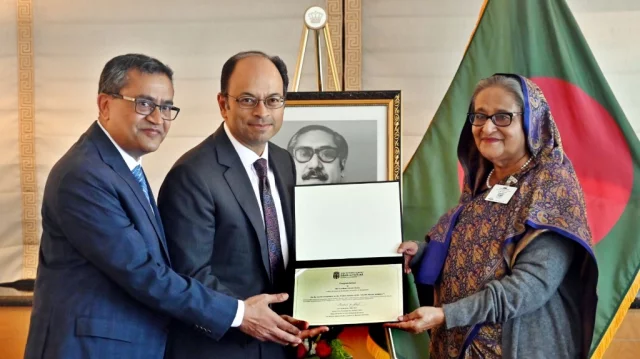
However, after the conspirators seized power in 2024 through a meticulously designed regime change involving anarchy, the operations of community clinics and the distribution of free medicine were once again suspended.
The illegitimate interim government, led by Nobel Peace laureate Muhammad Yunus, also suspended 116 social security allowance programs, putting the lives and livelihoods of millions of marginalized people in jeopardy.
The innovative initiative carries the slogan “Sheikh Hasinar Obodan, Community Clinic Banchay Pran,” which translates to “Sheikh Hasina’s contribution, community clinic saves lives.”
Corruption, suspension of operation plans cripple Bangladesh health sector
No accountability as 64 government hospitals running whimsically
In a recent speech, Awami League President and five-time Prime Minister Sheikh Hasina lamented that the houses built for the poor people under the Ashrayan Project and the community clinics are now being occupied or destroyed, with illegal activities like drug dens replacing essential services.
In rural areas, these clinics are the only source of free medicine, maternity care, functional referral to Upazila Health Complexes, preventive care services, including screening and vaccinations, and promotion of health education.
Each clinic is run by a community health care provider (CHCP), a health assistant, and a family planning assistant. Moreover, to run each clinic, there is a community group comprising 13-17 members and three community support groups.
To make the clinics dysfunctional, the Yunus regime abruptly cancelled 38 long-term essential operational plans (OPs) and stopped paying salaries for the health workers, disrupting primary healthcare, vaccination programs, maternal and childcare, family planning, medical education, and hospital management.
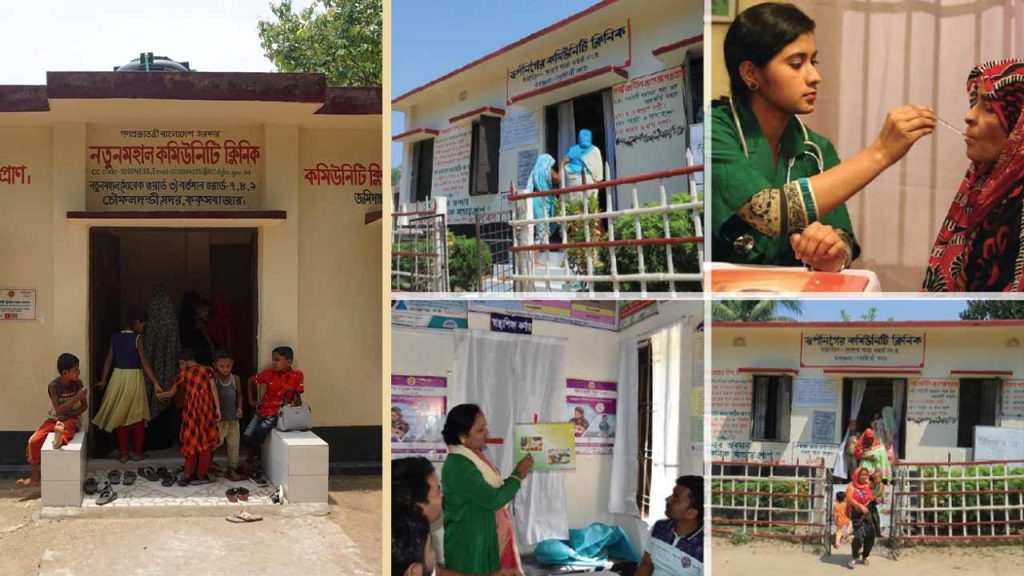
Activities such as public awareness, infrastructure development, human resource management, and monitoring and evaluation are being disrupted.
During the Covid-19 pandemic, community health workers played a key role in rural areas to prevent deaths and make people aware of staying protected, removing fear and anxiety about the virus. They also ensured that essential health services continued.
According to a study in 2021, Bangladesh had around 148,000 community health workers, of whom about 60,000 were supported by the government, while the rest were involved with non-government organizations.
The community health workforce was built with a focus on women’s empowerment, sustainability, community mobilization, and engagement with community clinics.
These clinics have played a crucial role in improving overall health services, leading to an increased life expectancy in Bangladesh and helping the country in achieving the Sustainable Development Goal (SDG) for universal health coverage (UHC) by 2030, the UN said in 2023.
According to the World Health Organization (WHO), community clinics became the prime strategy of the Awami League government towards achieving UHC.
How it began
As the president of the country’s largest political party, the Awami League, since 1981, Sheikh Hasina has travelled through Bangladesh and witnessed firsthand the issues of public concern. She realized that solving the people’s health issues would be pivotal in developing the country.
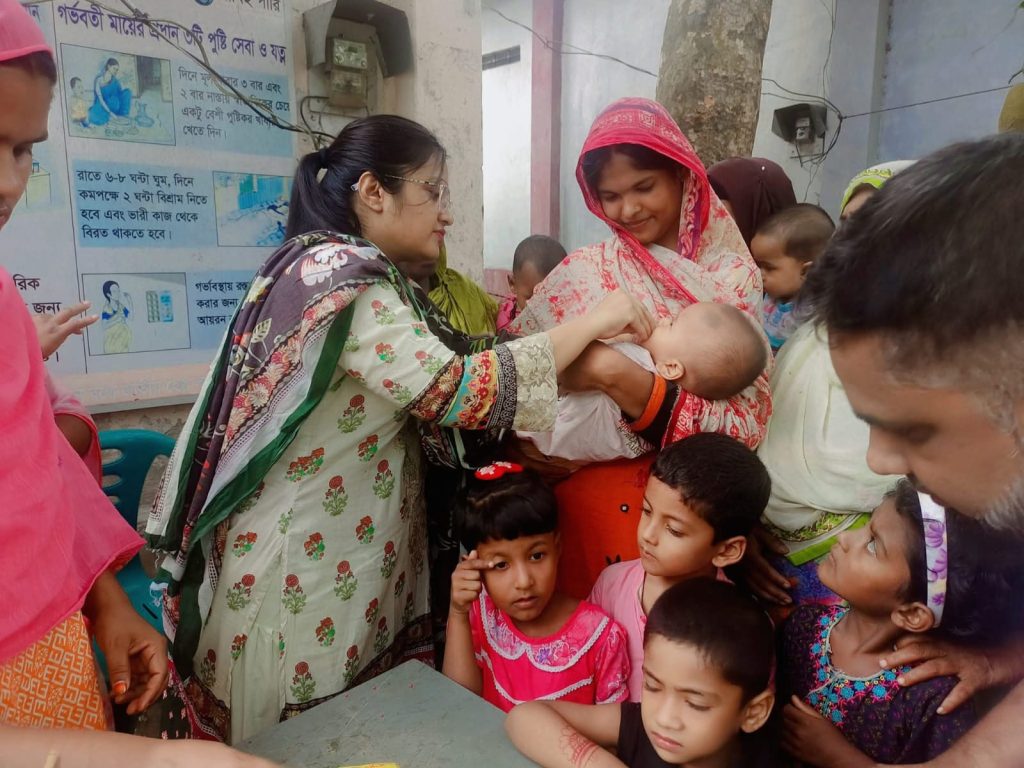
In 1998, Bangladesh introduced a well-thought-out and structured Community-Based Health Care (CBHC) program through the Health and Population Sector Program (1st HPSP 1998–2003).
When the party came to power again in 2009, Sheikh Hasina intensified support for the community clinics by increasing the number of free medicines and health workers under the project titled “Revitalization of the Community Health Care Initiatives in Bangladesh (RCHCIB) 2009–2015.”
In 2011, this project was mainstreamed within the Directorate General of Health Services (DGHS), with the incorporation of the clinics’ activities within the operational plans for 2011-2016 and 2017-2022.
Her government developed the national community health workers strategy (2019-2030) with the support of the WHO.
According to researchers, almost all the clinics are located in easy-to-reach areas and have excellent infrastructure; lands are donated by the respective communities; security is maintained by community people; and monitoring is done by analysis of monthly reports. The clinics provide referral services for pregnant women and encourage normal child deliveries, while healthcare delivery is found to be satisfactory in almost all the clinics.
UN recognition
The UN adopted a resolution on May 17, 2023, recognizing Bangladesh’s innovative community clinic model as an exemplary approach to achieving universal health coverage.
Referred to as “The Sheikh Hasina Initiative,” the resolution said the community clinics were established to bring all citizens under primary healthcare by providing services at the doorstep.
The UN resolution, co-sponsored by 70 countries, encouraged other countries to explore its implementation to enhance their healthcare systems.
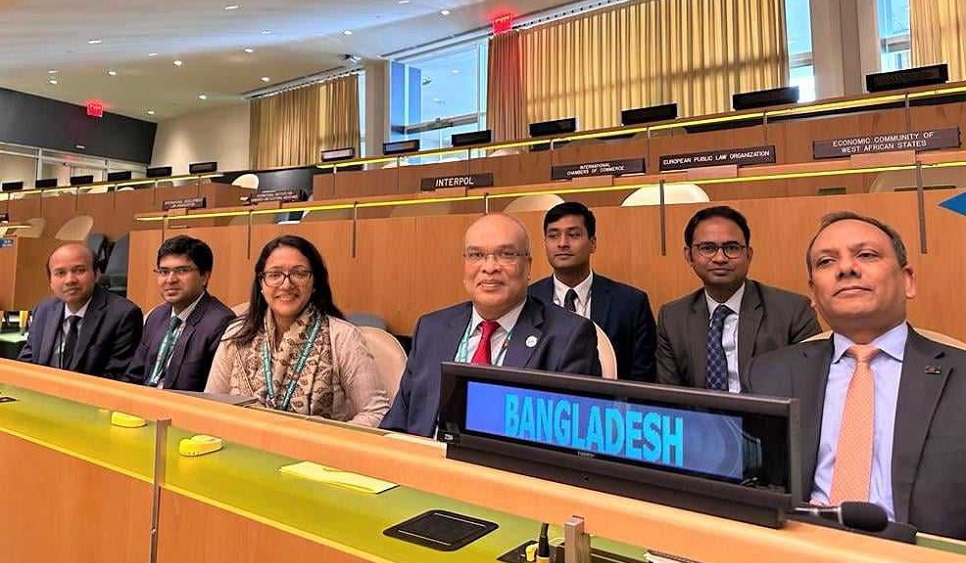
The resolution highlighted the success of the community clinic system in improving public health, expanding access, and providing a public-private partnership example, with community-donated land and government-provided facilities and services.
Special honors from Brown University
On September 19, 2023, Prime Minister Sheikh Hasina was accorded a special honor by Brown University as the UN recognized her community clinic model to reach healthcare services to Bangladeshis’ doorsteps.
Mukesh K. Jain, senior vice president for Health Affairs and dean of Medicine and Biological Sciences of The Warren Alpert Medical School of Brown University, handed over a citation to Sheikh Hasina, who was visiting the US at that time. He also offered to help Bangladesh introduce electronic data management in the community clinics to keep records of the patients.
The citation congratulated Sheikh Hasina, adding that the clinics promoted primary health care, women’s empowerment, and community engagement.
Grim pictures everywhere
Recent visits revealed that free medicines were not distributed in most of the rural community clinics in the past year, with a few clinics providing 2-3 medicines.
Local people, mostly women and children from poor families, were seen waiting in long queues where the clinics were operational, but they expressed frustration due to the unavailability of free medicines.
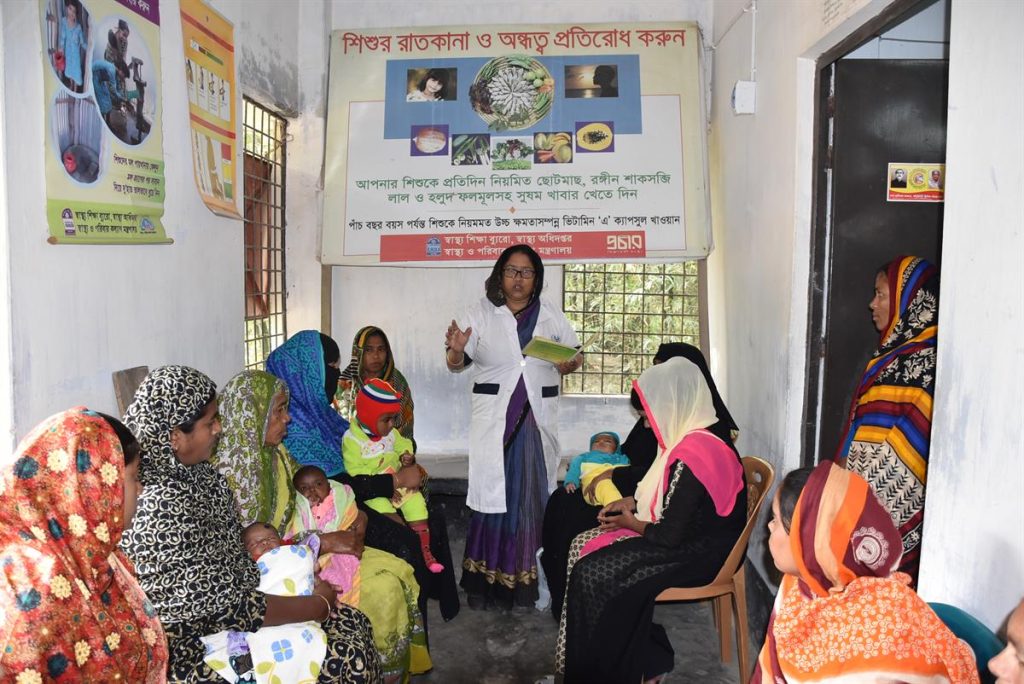
They said that they were too poor to afford medical care at a distant place and buy medicines, while remembering Sheikh Hasina for her generosity.
Some criticized the interim government for suspending the allowances under the social safety net programs, canceling 43 lakh family cards, and discontinuing Open Market Sales (OMS) of essential goods at subsidized prices when the inflation has remained high, employment is scarce, and the economy is collapsing due to misrule and corruption.
On the other hand, health workers said they were providing free treatment to marginalized people as a moral obligation, despite not receiving salaries due to the Yunus regime’s vengeful policies.
They also expressed frustration because of the large number of patients and their inability to provide free medicine as per the demand.